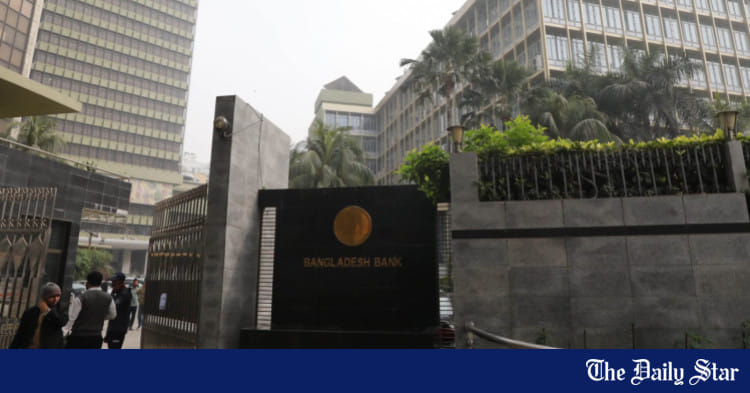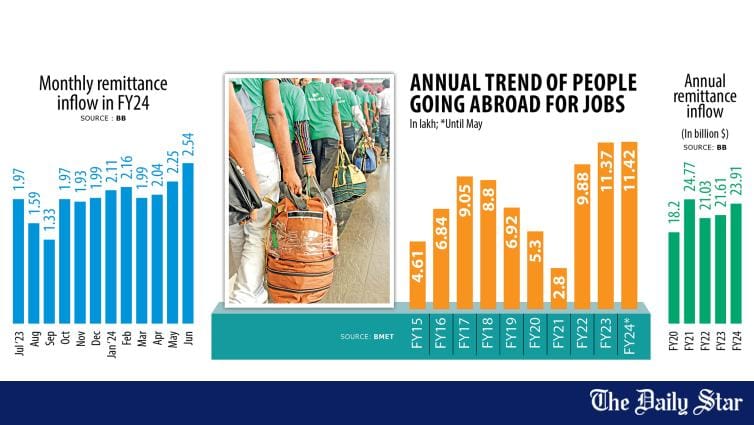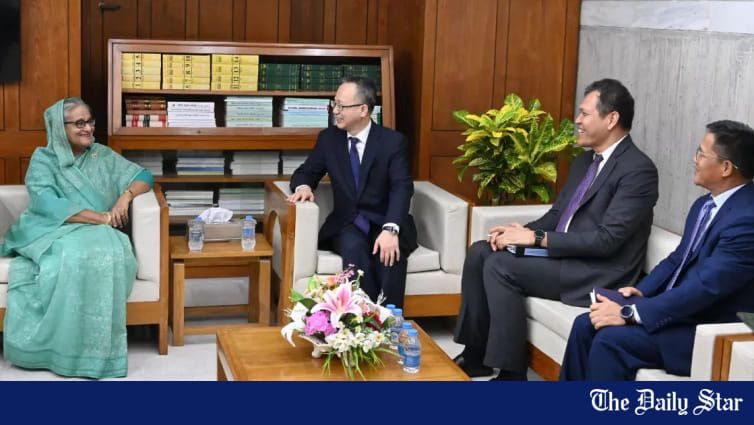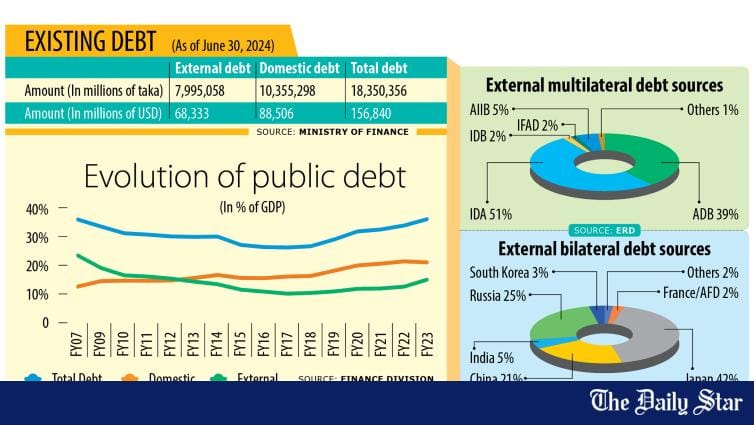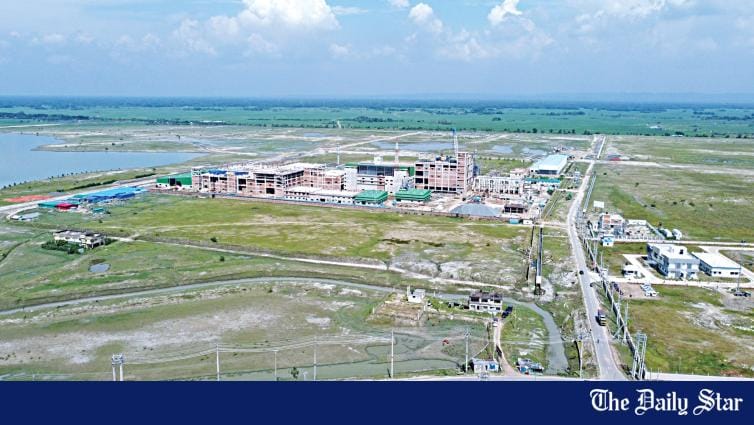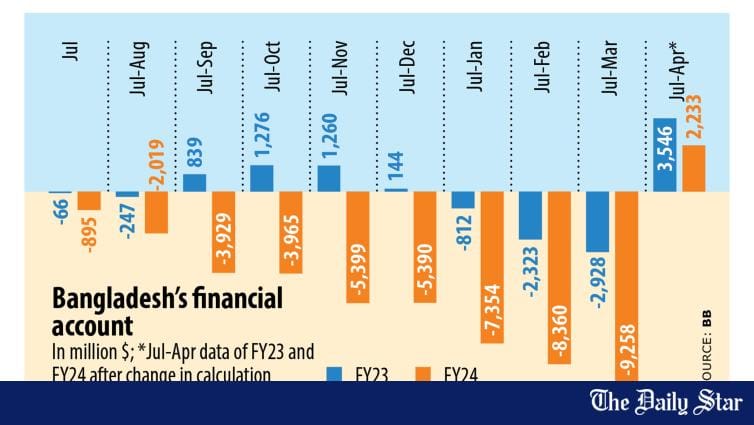Saif
Senior Member
- Joined
- Jan 24, 2024
- Messages
- 17,239
- Likes
- 8,332
- Nation

- Residence

- Axis Group


No visible progress in signing Cepa with India
Bangladesh and India are yet to begin the formal negotiation to sign the Comprehensive Economic Partnership Agreement (Cepa) although nearly two years have passed since both countries agreed to kick off the talks.
No visible progress in signing Cepa with India

Bangladesh and India are yet to begin the formal negotiation to sign the Comprehensive Economic Partnership Agreement (Cepa) although nearly two years have passed since both countries agreed to kick off the talks.
Dhaka needs to pen bilateral deals with trading partners in order to retain preferential market access in the post-LDC era since duty-free export facilities end once the country becomes a developing nation.
Bangladesh and Bhutan signed a preferential trade agreement (PTA) in December 2020, the first bilateral trade pact for the former. The deal came into effect in July 2022, much ahead of Bangladesh's scheduled graduation from the group of the least-developed countries (LDCs) in November 2026.
There has not been visible progress when it comes to inking trade deals with other countries, including India.
Dhaka needs to pen bilateral deals with trading partners in order to retain preferential market access in the post-LDC era since duty-free export facilities end once the country becomes a developing nation
No specific timeline to begin the talks about the Cepa was cited in the joint statement issued after the meeting of both Bangladeshi Prime Minister Sheikh Hasina and her Indian counterpart Narendra Modi in New Delhi in the third week of June.
Both prime ministers talked about the Cepa during the meeting, State Minister for Commerce Ahasanul Islam Titu told The Daily Star.
After the meeting, the Indian Ministry of External Affairs, in a statement, said Bangladesh and India agreed to strengthen trade and investment ties, including through an early commencement of negotiations for a Cepa.
The statement also talked about an early operationalisation of two special economic zones offered by Bangladesh to India in Mongla and Mirsharai, the opening of new border haats, trade facilitation to enhance bilateral commerce, and improving road, rail, air, and maritime connectivity, and trade infrastructure.
Both Hasina and Modi welcomed the findings of a joint study on the Cepa in a statement in September 2022 and agreed to start the negotiations, saying a Cepa would be beneficial for both countries.
The Bangladesh Foreign Trade Institute and the Centre for Regional Trade of India conducted the study based on trade data between 2015 and 2020.
Titu said Bangladesh is ready to hold the first formal dialogue with India.
He is optimistic that the inaugural dialogue will be held this year. "Our team is ready."
"The political signal for beginning the formal Cepa negotiation is important," said Mustafizur Rahman, a distinguished fellow of the Centre for Policy Dialogue.
He said perhaps both countries are taking more time to begin the talks. Had there been strong political commitment, the process would have fast-tracked.
Also, maybe, the negotiators are taking more time to study further before signing the Cepa, he said.
Inking a trade deal would be important for both countries because they are increasingly becoming an important trade partner for each other.
India is the second-largest import source for Bangladesh after China.
Imports from India stood at $9.49 billion in the fiscal year of 2022-23 while exports to the country amounted to $2.13 billion, figures from Bangladesh Trade Portal and Bangladesh Bank showed.
Bangladesh mainly imports textiles and fabrics, industrial raw materials and intermediate goods, food items, cotton and chemicals for industrial use.
If Bangladesh can sign bilateral deals, it would be able to access LDC-induced benefits for three more years after graduation.
"Bangladesh's strategy should be enjoying the LDC scheme as long as possible. Simultaneously, we should be well-prepared for the Cepa," said Rahman.
Bangladesh might not make a large gain from the Cepa since it would lose the duty-free market access as an LDC, said the joint study. On the other hand, India will make a larger gain primarily through the removal of existing high tariff rates.
"The fear of losing the revenue from import duties may be another factor for the delay in launching the formal negotiation," CPD's Rahman said.
Bangladesh, however, has the potential to benefit from trade in services in tourism, transport and educational cooperation, and also through the creation of jobs by attracting Indian investments.
The Cepa is expected to boost Bangladesh's exports by 190.15 percent, and even more, if transaction costs are reduced through improved connectivity, according to the study.
India's exports to Bangladesh are expected to surge by 188 percent.
The Cepa will expand the size of Bangladesh's GDP by 1.72 percent and India's by 0.03 percent, the study found.
Bangladesh and India are yet to begin the formal negotiation to sign the Comprehensive Economic Partnership Agreement (Cepa) although nearly two years have passed since both countries agreed to kick off the talks.
Dhaka needs to pen bilateral deals with trading partners in order to retain preferential market access in the post-LDC era since duty-free export facilities end once the country becomes a developing nation.
Bangladesh and Bhutan signed a preferential trade agreement (PTA) in December 2020, the first bilateral trade pact for the former. The deal came into effect in July 2022, much ahead of Bangladesh's scheduled graduation from the group of the least-developed countries (LDCs) in November 2026.
There has not been visible progress when it comes to inking trade deals with other countries, including India.
Dhaka needs to pen bilateral deals with trading partners in order to retain preferential market access in the post-LDC era since duty-free export facilities end once the country becomes a developing nation
No specific timeline to begin the talks about the Cepa was cited in the joint statement issued after the meeting of both Bangladeshi Prime Minister Sheikh Hasina and her Indian counterpart Narendra Modi in New Delhi in the third week of June.
Both prime ministers talked about the Cepa during the meeting, State Minister for Commerce Ahasanul Islam Titu told The Daily Star.
After the meeting, the Indian Ministry of External Affairs, in a statement, said Bangladesh and India agreed to strengthen trade and investment ties, including through an early commencement of negotiations for a Cepa.
The statement also talked about an early operationalisation of two special economic zones offered by Bangladesh to India in Mongla and Mirsharai, the opening of new border haats, trade facilitation to enhance bilateral commerce, and improving road, rail, air, and maritime connectivity, and trade infrastructure.
Both Hasina and Modi welcomed the findings of a joint study on the Cepa in a statement in September 2022 and agreed to start the negotiations, saying a Cepa would be beneficial for both countries.
The Bangladesh Foreign Trade Institute and the Centre for Regional Trade of India conducted the study based on trade data between 2015 and 2020.
Titu said Bangladesh is ready to hold the first formal dialogue with India.
He is optimistic that the inaugural dialogue will be held this year. "Our team is ready."
"The political signal for beginning the formal Cepa negotiation is important," said Mustafizur Rahman, a distinguished fellow of the Centre for Policy Dialogue.
He said perhaps both countries are taking more time to begin the talks. Had there been strong political commitment, the process would have fast-tracked.
Also, maybe, the negotiators are taking more time to study further before signing the Cepa, he said.
Inking a trade deal would be important for both countries because they are increasingly becoming an important trade partner for each other.
India is the second-largest import source for Bangladesh after China.
Imports from India stood at $9.49 billion in the fiscal year of 2022-23 while exports to the country amounted to $2.13 billion, figures from Bangladesh Trade Portal and Bangladesh Bank showed.
Bangladesh mainly imports textiles and fabrics, industrial raw materials and intermediate goods, food items, cotton and chemicals for industrial use.
If Bangladesh can sign bilateral deals, it would be able to access LDC-induced benefits for three more years after graduation.
"Bangladesh's strategy should be enjoying the LDC scheme as long as possible. Simultaneously, we should be well-prepared for the Cepa," said Rahman.
Bangladesh might not make a large gain from the Cepa since it would lose the duty-free market access as an LDC, said the joint study. On the other hand, India will make a larger gain primarily through the removal of existing high tariff rates.
"The fear of losing the revenue from import duties may be another factor for the delay in launching the formal negotiation," CPD's Rahman said.
Bangladesh, however, has the potential to benefit from trade in services in tourism, transport and educational cooperation, and also through the creation of jobs by attracting Indian investments.
The Cepa is expected to boost Bangladesh's exports by 190.15 percent, and even more, if transaction costs are reduced through improved connectivity, according to the study.
India's exports to Bangladesh are expected to surge by 188 percent.
The Cepa will expand the size of Bangladesh's GDP by 1.72 percent and India's by 0.03 percent, the study found.


































